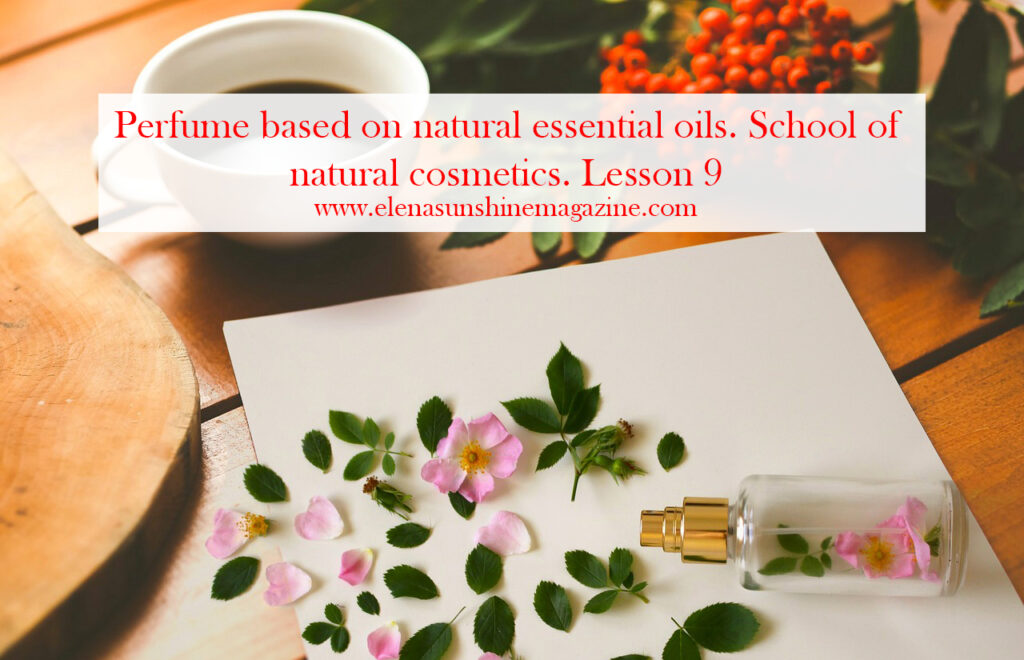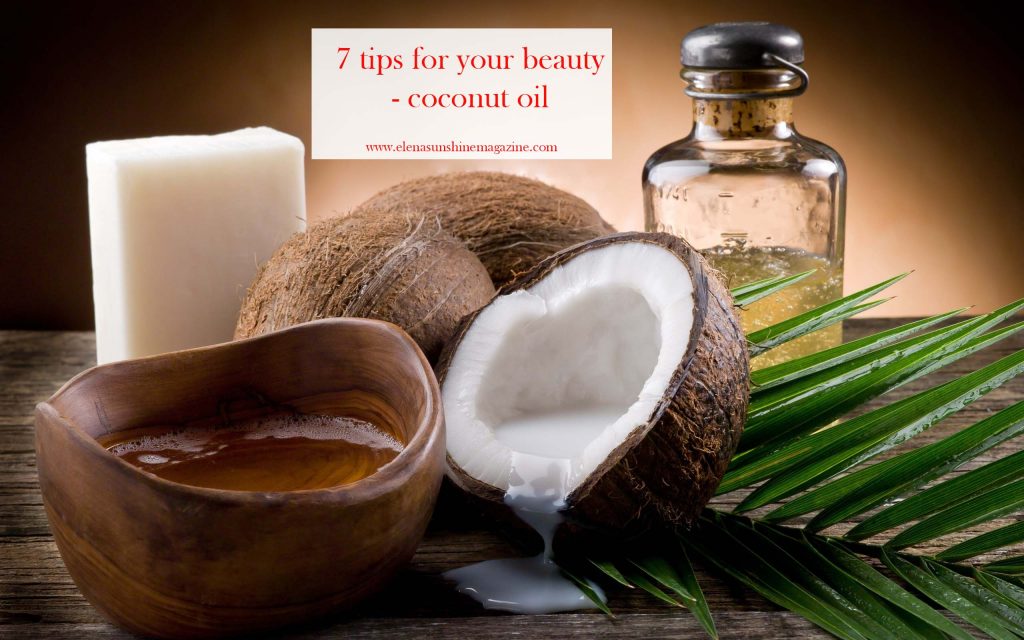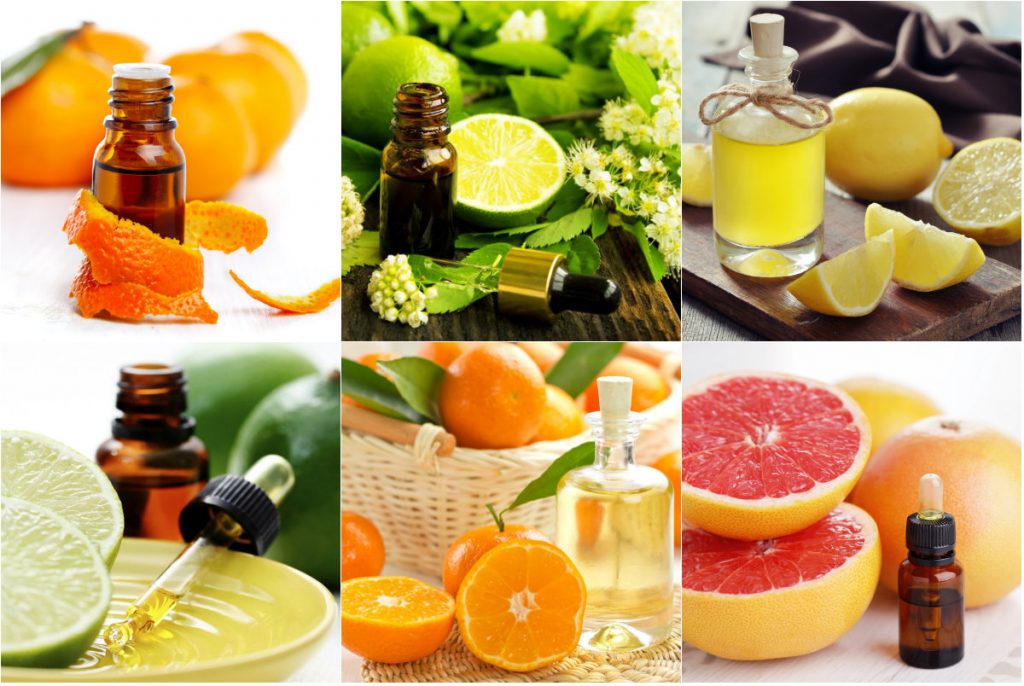How do you choose “your” fragrance? It would seem that there should be no difficulties here — there is a huge selection of perfumes in stores. But no, the fragrance is not persistent, then it “sounds” on the skin not at all as “planned” … Or maybe leave the futile attempts to find the perfect perfume among the brands on the market and make the perfume yourself? Perfume based on natural essential oils.
Which fragrance suits you?
If you like articles subscribe to our newsletter and you will learn more. https://elenasunshinemagazine.substack.com/
Like what you’re reading? You can sign up for Medium using my affiliate link. Just $5 a month to read an unlimited number of articles and help me create further. Together we will move mountains!
https://elenasunshinemagazine.medium.com/membership
Each fragrance is built on a certain principle. And then it is customary to “lay out” them by notes — this classification is followed by all perfumers.
Do not rush to run to the nearest pharmacy for essential oils! First, you should decide what” direction ” of perfume you will create, because each component will give the composition its unforgettable aroma.
And how many notes are there in perfumery?
Upper one
This is the fragrance that you hear immediately after applying perfume to the skin. It is the top note that determines the first impression of the perfume. It “plays” for a short time — up to 20 minutes.
The essential oils of the top note evaporate faster than the rest. It is recommended to use the following types-lemon, grapefruit, rosewood, lime, mint, orange, bergamot, lavender.
Average
This is the link between the upper and base notes. The fragrance opens gradually, allowing you to enjoy all the tones and semitones of the perfume. The middle note will be felt for up to 60 minutes.
Essential oils of jasmine, nutmeg, chamomile, juniper, thyme, violet, ylang-ylang, rosemary, geranium, violet are excellent as aromas of the middle note.
Basic
This is the most “long-playing” note that you will feel for several hours in a row. It captures the fragrance and gives an overall impression of the perfume.
To create a base note, the following essential oils are appropriate — cinnamon, sandalwood, patchouli, vanilla, pine, sandalwood.

Important!
The classic” formula ” of the perfume according to the initial, middle and base notes is -1:2:3. When mixing the perfume composition with the base (oil or alcohol) , you need to adhere to the ratio of 1:4 or 1:5. If you make alcoholic perfumes, distilled water is additionally added to the mixture — in a ratio of 1:2 or 1: 1 to the total volume of the base. It turns out that for mixing alcoholic spirits, we will take 4 teaspoons of alcohol, 2 – 4 teaspoons of water and 10-17 drops of essential oils. The secret of making an oil perfume is 15-20 drops of essential oils per 4 teaspoons of the base.
In order for one note in the created perfume to smoothly replace another, it is important to observe the correct proportion. Decide — which fragrance will prevail in the composition?
What “mood” will the spirits have? Perfume based on natural essential oils.
There are many fragrance families. And when choosing the essential oils that you will use, you should first of all decide which perfume you want to get “at the exit”:
Invigorating aromas — bergamot, mint, sage, lavender, thyme.
Spicy aromas — cinnamon, nutmeg, cloves.
Floral aromas — jasmine, ylang-ylang, rose, orange tree.
Fresh aromas — grapefruit, bergamot, lemon, verbena, mandarin.
Oriental aromas — frankincense, myrrh.
Herbal aromas — lemon balm, basil.
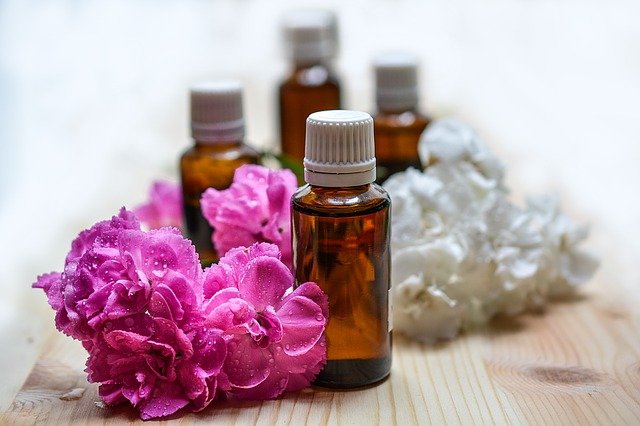
Let’s decide on the base: oil or alcohol?
Since essential oils are highly concentrated substances and can cause burns on the skin, when making “home” perfumes, they need to be diluted in the base. It can be used as oil or medical alcohol.
The technology of manufacturing oil and alcohol perfumes is practically no different. Therefore, when choosing a base, focus not on which fragrance is easier to create, but on other factors — the durability of the composition, the storage period, the place of application of the perfume.
Oil perfumes, as practice shows, are more resistant. But the aroma will turn out to be “restrained”, since the concentration of essential oils here will be somewhat less. Don’t like sharp smells? Then choose an oil base! For these purposes, jojoba oil or almond oil is perfect — they are odorless, which means that they will not “kill” the bouquet you have created. Be careful — oil-based perfume leaves traces on clothes!
Alcoholic spirits are more saturated, but they are exhaled much faster. You will spend more time on their preparation — the composition will have to” stand ” for 2-4 weeks. The finished perfume is stored for up to 3 months. Alcohol perfume will not leave traces on clothes. A novice perfumer will need 90% alcohol.
Beginner Perfumer’s Kit
Are you serious? Make sure that only high-quality ingredients are at your disposal for the preparation of perfumes! Alcohol and base oil for the base can be bought at a pharmacy — there should be no problems with this. But approach the choice of essential oils with caution.
Important!
In cosmetic stores and pharmacies, as a rule, unnatural essential oils are presented — these are substances reduced and diluted in soy oil. These are suitable only for flavoring rooms. But natural essential oils in the perfume business are not the best option! They are quite “complex” in terms of their own smell and can give unpredictable aromas when making a perfume. Essential oils of perfume quality are much better — they undergo a special cleaning, which makes it possible to get a clean light aroma.
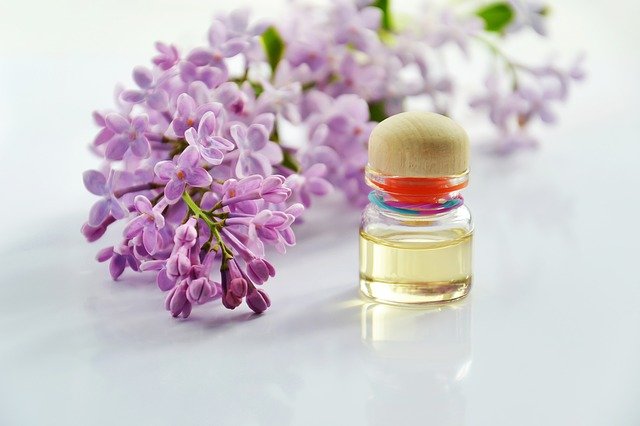
From the inventory for the preparation of spirits, you will need: glass container for mixing perfume, dark glass containers with a lid for “infusing” perfume, cardboard test strips, bottles with a spray gun for ready-made perfumes, pipettes.
Come up with your own composition of essential oils
The most interesting thing begins! We turn on our imagination and start experimenting with the” sound ” of aromas.
Start creating a fragrance from the base note — this fragrance will be the most persistent. Drop on a piece of paper-tester (blotter) a drop of essential oil, the smell of which you like. And the final note of the perfume will not necessarily consist of only one fragrance — try essential oils in combination. Sign the papers with a pencil — so you will not get lost in the smells.
Important!
To reveal a fragrant bouquet of notes consisting of several essential oils, each of them must be applied to a separate blotter. Fold the pieces of paper with a fan and bring them to your nose to feel the beauty of the resulting fragrance. You can vary the number of certain components, choosing the best composition.
Did you pick up the base note? Now we move on to the others-the middle and upper ones. Combine the oils for each note separately, and then-in combination. And do not forget about the” formula ” of spirits-1:2:3. That is, in the end, you should evaluate the composition made according to this rule.
Write down each of your actions so that you can then choose the perfect perfume recipe for yourself — the amount of each of the essential oils may vary. The process is very exciting — experiment!
“Mix” the perfume. Perfume based on natural essential oils.
Creating a bouquet is the most difficult stage in the production of” home ” perfumes. Now it’s a small matter — to bring the idea to life. The technology of “mixing” the perfume is as follows:
Pre-wash and dry all working equipment.
In a container made of dark glass, pour the right amount of base-oil or alcohol.
Now, drop by drop, according to the recipe, add essential oils to it. First, the components of the middle note, then the base note, and last of all, the upper note. After adding each component, shake the container!
Place the bottle in a darkened place for “infusing”. Shake it every 3 days.
After a couple of weeks, check whether the song has acquired the desired “sound”. If not, we stand it again.
The finished perfume can then be poured into small bottles with a spray gun.
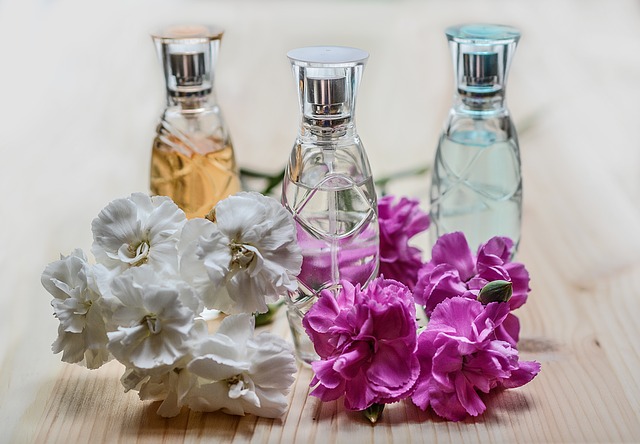
Important!
Oil perfume can not be infused at all, but immediately used for its intended purpose. If you want to get a deeper flavor, keep the mixture for no more than 2 weeks.
Do not forget that the perfume prepared by you has a short life — the fragrance will either run out of steam or change its sound not for the better. Therefore, do not prepare a perfume in reserve!
Recipes of “home” natural perfume. Perfume based on natural essential oils
Making perfume is a real art! Every master of fragrance creation will confirm this to you. If you haven’t learned all the tricks of the business yet, you can take several interesting perfume recipes as a basis:
Perfume for a romantic mood
For 4 teaspoons of alcohol base, you will need the following essential oils:
Orange oil 5 caps,
lavender 1 cup,
Patchouli 2 caps,
Cedar 2 caps,
Ylang-ylang 1 cap,
Bergamot 2 drops.
Perfume with a “warming” aroma
For 4 teaspoons of jojoba oil, you will need the following essential oils:
lavender 8 caps,
Chamomile 5 caps,
Cardamom 4 caps,
Cedar 1 cap,
Geranium 1 cap.
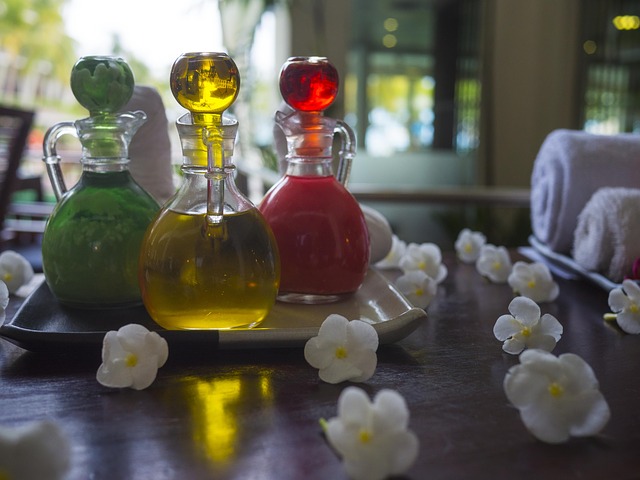
Perfume with a fresh “forest” aroma
For 4 teaspoons of oil base, you will need the following essential oils:
Spruce 8 caps,
Fir 4 caps,
Cedar 4 caps,
Bergamot 1 cap.

